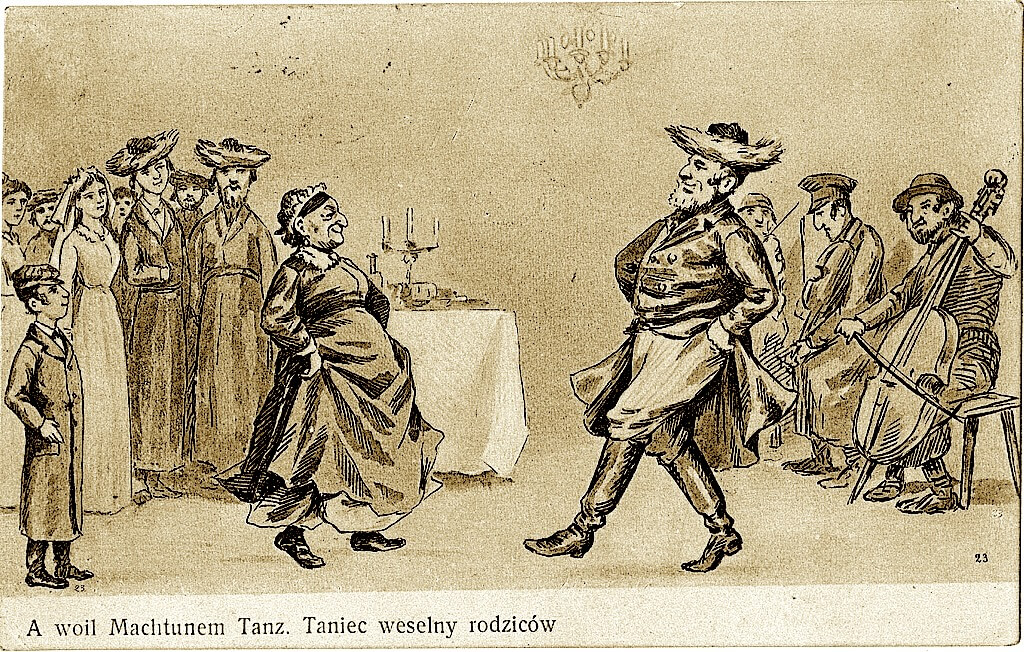How a Yiddish folksong appeared on a 1967 American pop album

Image by United Artists
At the height of his success in 1967, Jay Black, lead singer of the pop band, Jay and the Americans, recorded a popular Yiddish folk song and managed to convince his record label, United Artists, to include it on the B-side of their album, “Try Some of This!”
The story, first published by the Forward in 2014, resurfaced last October when Jay Black passed away at the age of 83.
The song, “Vi iz dus gesele?” (where is the village?), was initially discovered by a YIVO folklore zamler, or collector, from a Jewish informant in Grodno, Belarus, in the 1930s. It describes love and loss, and after the Holocaust became an outlet to express grief over the wiping out of the thousand-year old Jewish civilization in eastern Europe.
Though the Holocaust took place in the 1940’s, American Jews weren’t fully awakened to its horrors until the daily broadcast of Israel’s Adolf Eichmann trial on primetime TV in 1961, which stretched over five months. It was then that they absorbed not only the depths of the evil perpetrated against the Jews, but also came to realize that the world they and their families had come from was completely destroyed.
In 1963, the late cantor Jan Peerce recorded “Vi iz dus gesele?” as a tribute to the six million Jews murdered by the Nazis, and in 1965, pop singer Steve Lawrence recorded another song associated with the Holocaust – “Vu ahin zol ikh geyn?” (Where should I go?) – on the “B” side to his 1965 hit, “Last Night I Made A Little Girl Cry”, preceding the song with an English translation of it.
In the meantime, “Vi iz dus gesele?” stayed largely within the confines of the Jewish world, until Jay and the Americans released it in early 1967 with the English title, “Where is the Village?”. Jay Black was proud of the efforts he took to release the song, seeing how they resonated with his audiences in live performances, and the strong feelings they conjured up.
It was a risky decision for the singer: not only would he be singing a Holocaust song in the middle of a pop record; he would even lead it off in Yiddish. (Lawrence preceded his Yiddish song with the English translation, apparently to ease the audience into it.)
Instead Black introduced the song with a brief English narration: ”After the war, I returned to my village; my mother, my father, my sister, my brother, my sweetheart, were all gone,” – hoping, apparently, to provide a way for his audience to sense the gravity of the lyrics.
Jay Black, born David Blatt, was a complex, yet entertaining figure, according to the 2014 Forward profile of him. “I never finished high school,” he said. “I went to three yeshivas. They threw me out. Three yeshivas. I was a bad kid. I was a wise guy. When I graduated from eighth grade, I was the class comedian. I was always a trouble maker.”
“Jay Black was a singer first and foremost,” recalls Jim Steinblatt, a retired event planner for the Association of American Composers and Performers (ASCAP), who knew him personally. “He was a very funny guy, self-deprecating, and viewed himself as a star.” Steinblatt mentioned a funny moment in particular: One day, he and Black were both in the airport waiting for a flight. As they walked by a men’s room, Black joked in rhyme: “Intermission, me darf geyn pishn” (let’s take an intermission, I’ve got to go pee.)
The singer had a strained relationship with just about everybody, Steinblatt said. Many years later, after a number of successful years with Jay and the Americans, he became so addicted to gambling that he was eventually kicked out of the band. Later bankruptcy proceedings forced him to give up the rights to the stage name, Jay and the Americans, to the rest of his band.
Though discord made up much of his life, it’s worth remembering how he and the power of this simple Yiddish folksong broke into American pop music, with this tribute to the Jews of Europe.
Listen to his rendition on Youtube or on Spotify
The lyrics of “Vi iz dus gesele”:
Vi iz dus gesele Vi iz dus shteeb Vi iz dus meydele Vemen ikh hob lib
Ot iz dus gesele Ot iz dus shteeb Ot iz dus meydele Vemen ikh hob lib
(Translation: Where is the street, where is the home, where is the girl whom I love. Here is the street, here is the home, here is the girl whom I love.)
A message from our Publisher & CEO Rachel Fishman Feddersen

I hope you appreciated this article. Before you go, I’d like to ask you to please support the Forward’s award-winning, nonprofit journalism during this critical time.
At a time when other newsrooms are closing or cutting back, the Forward has removed its paywall and invested additional resources to report on the ground from Israel and around the U.S. on the impact of the war, rising antisemitism and polarized discourse.
Readers like you make it all possible. Support our work by becoming a Forward Member and connect with our journalism and your community.
— Rachel Fishman Feddersen, Publisher and CEO
























